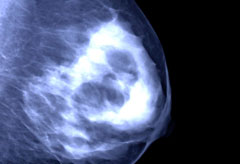Breast cancer screening could be a health risk
The success of the national breast screening programme has been brought under debate after a review claiming it causes unnecessary anxiety and suffering.

The success of the national breast screening programme has been brought under debate after a review claiming it causes unnecessary anxiety and suffering.
New claims suggest that breast cancer screening could be harming as many women as it helps through over diagnosis, resulting in unnecessary treatment and suffering.
Breast cancer screening has divided the medical profession for 20 years, despite advocates of the programme claiming it annually prevents 1,400 deaths and saves two women’s lives for every one who receives unnecessary treatment.
Oxford University’s public health epidemiologist, Professor McPherson, said, ‘There is no doubt that screening for breast cancer has limited benefit and some possibility of harm for an individual woman and is of marginal cost-effectiveness for the community.’
Critics claim that the benefits of screening have never been properly weighed up against the drawbacks, centrally that in some cases the cancer detected does not need treatment due to slow growth or the probability that it will heal without medical interference.
A recent Danish study, published in the British Medical Journal, found that deaths from breast cancer had fallen faster in areas without screening than in those where it was used.
However, Sarah Sellars, director of the NHS Breast Screening Programme, said, ‘The vast majority of evidence from properly conducted research clearly shows that regular mammography reduces deaths from breast cancer.’
Celebrity news, beauty, fashion advice, and fascinating features, delivered straight to your inbox!
The World Health Organisation’s International Agency for Research on Cancer (IARC) concluded that there is a 35% reduction in mortality from breast cancer among regularly screened women aged 50-69 years old.